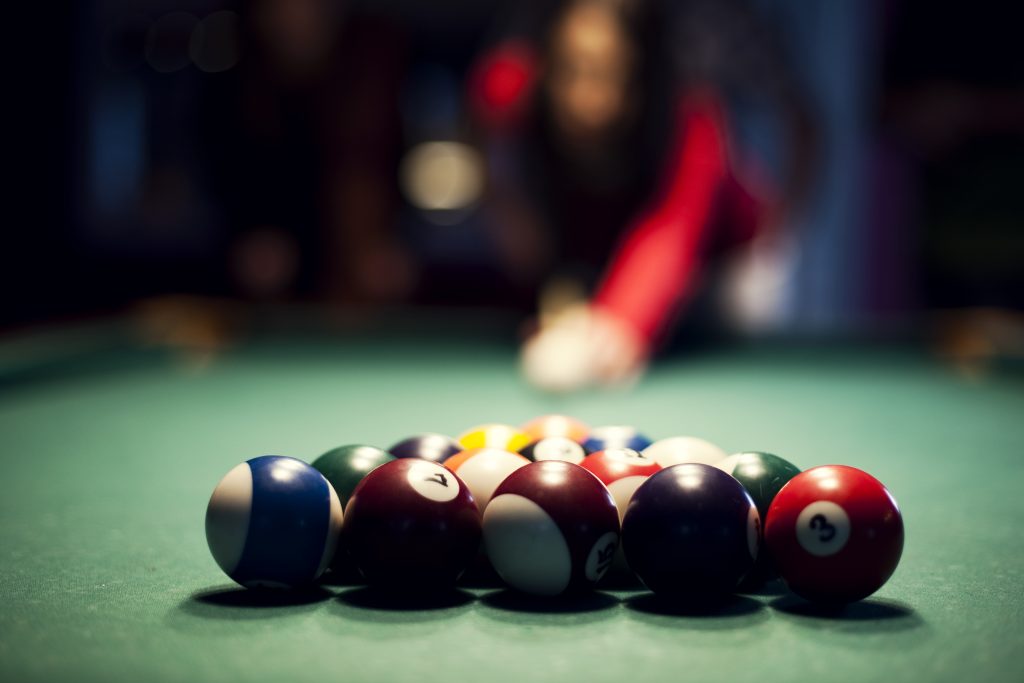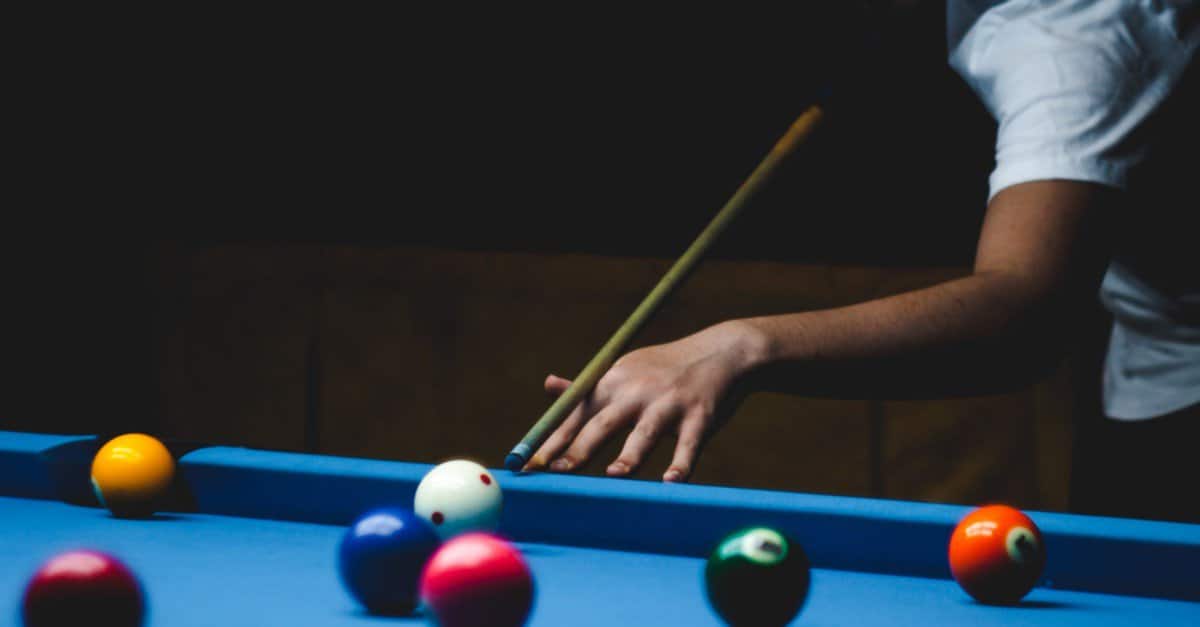Is Pool A Sport? Debunking The Debate | Google Discover
Is billiards a sport? The answer is an emphatic yes, supported by the very definition of the word and the global recognition it receives.
The question of whether cue sports, encompassing games like pool and snooker, constitute legitimate sports has sparked debate for years. The essence of the discussion often revolves around the perceived lack of strenuous physical activity compared to sports like football or basketball. However, a deeper examination reveals that billiards, in its various forms, aligns perfectly with the criteria that define a sport. Any dictionary definition of the term sport will readily accommodate billiards. It's not merely a game; it is a discipline that demands precision, strategic thinking, and unwavering mental fortitude.
| Category | Details |
|---|---|
| Sport Definition | An activity involving physical exertion and skill in which an individual or a team competes against another or others for entertainment. (Oxford Dictionary) |
| Physical Exertion | While the physical demands differ from high-impact sports, billiards necessitates fine motor skills, controlled movements, and stamina for sustained concentration. Players must maintain a steady stance, control their breathing, and execute precise shots. |
| Skill & Strategy | Billiards requires a complex interplay of skills, including:
|
| Competition & Entertainment | Billiards tournaments are characterized by intense competition, attracting audiences worldwide. Players compete for rankings, titles, and lucrative prizes. The entertainment value is evident in televised matches, online streaming, and packed arenas. |
| Global Recognition | Cue sports are recognized internationally and have dedicated governing bodies, such as the World Pool-Billiard Association (WPA). These organizations establish rules, promote the sport, and oversee professional competitions. The WPA, established in 1987, unites major pool associations from Africa, Asia, Australia, North America, and Europe, highlighting pool's structured and organized nature. |
| Standardized Equipment & Rules | The existence of standardized equipment (tables, cues, balls) and universally accepted rules contributes to the professionalization and legitimacy of billiards as a sport. This standardization ensures fair play and allows for objective evaluation of player performance. |
| Professionalism | With structured tournaments, professional leagues, and opportunities for financial gain, billiards has evolved into a professional sport. Players can dedicate their lives to the sport, earning income through competition, sponsorships, and endorsements. |
| Governing Bodies | World Pool-Billiard Association (WPA), World Professional Billiard and Snooker Association (WPBSA) and numerous national federations provide oversight and regulation. |
| Popular Game Variations | Pocket billiards (8-ball, 9-ball, etc.), Snooker, Carom billiards (straight rail, three-cushion, etc.) |
| Misconceptions | The association with casual environments like bars and pool halls often leads to the misconception that pool isn't a sport. The focus on recreational play obscures the highly skilled, competitive, and demanding nature of the game at a professional level. |
| Reference | World Pool-Billiard Association (WPA) |
The argument that pool is merely a game often stems from the association with casual settings like bars and pool halls. It's easy to misunderstand the complex skill set when observing recreational players. However, the reality is far more nuanced. The precision required, the strategic planning involved, and the mental fortitude demanded by professional players elevate pool to a level comparable to many other recognized sports.
The intensity of competition in pool tournaments rivals that of any other sport. Players meticulously plan their shots, anticipating ball positions several steps ahead. They must develop exceptional hand-eye coordination, maintain a steady demeanor under pressure, and possess the mental stamina to play for hours. This is not a casual activity; it's a discipline that demands rigorous training and dedication.
Consider the fine motor skills needed to control the cue stick, the understanding of angles and spin to manipulate the balls, and the mental calculations required to plan the perfect run. The combination of these elements, along with the physical endurance needed to maintain focus and perform consistently, clearly demonstrates the athletic aspect of the sport.
Cue sports boast their own governing bodies, ensuring fair play and promoting the sport globally. These organizations establish rules, organize tournaments, and regulate professional play. The presence of these bodies, along with standardized equipment and global communities, further solidifies the argument for billiards being a sport.
The physical aspect of billiards, while not involving the same type of exertion as some other sports, still requires physical control, coordination, and stamina. Players must maintain a stable posture, control their breathing, and execute precise shots under pressure. This involves a degree of physical exertion, especially during prolonged matches.
The evolution of billiards into a professional sport is undeniable. With structured tournaments, professional leagues, and lucrative prizes, players can dedicate their lives to the game, earning a living through competition, sponsorships, and endorsements. This professionalization is a key indicator of the sport's legitimacy.
The debate surrounding the classification of billiards often misses the point that the core definition of a sport is an activity involving physical exertion and skill. Billiards unquestionably ticks both boxes. Furthermore, the global community, established rules, and professionalization within the sport all point towards its rightful place in the sporting world.
The question of whether pool should be considered a sport or a game has been a topic of debate within the world of cue sports for many years. While some argue that it is purely a recreational activity, others contend that it requires a high level of skill, physical coordination, and mental acuity, thus qualifying it as a legitimate sport. The short answer is yes, it is a sport.
The key is to recognize that pool, like any sport, has different levels of participation. Casual players may enjoy the game in a relaxed setting, but the level of skill and competition found in professional pool is far removed from this. Players that study, practice and compete in tournaments are playing a sport.
Billiards involves a high degree of precision. There is no other sport that requires as much precision as pool. If we compare other sports to pool, no precision is required. Does that make them not sports? You don't need to bench 300+ lbs to play pool, the same as you don't need to bench 300+ lbs to play soccer.
The history and influence of pool, billiards, and snooker is quite extensive. Pool originated in the United States in the late 19th century, and has since spread across the globe, developing its own unique culture and traditions.
The presence of standardized equipment, from the tables and cues to the balls, and the widely recognized rules, contributes to its credibility as a sport. The emphasis on strategy, skill, and mental focus aligns with other sports.
The fact that many sports events internationally recognize these cue sports is a strong indicator of its status. They have professional circuits, ranking systems, and dedicated athletes who train and compete at a high level.
In conclusion, to say that billiards is a sport is not just accurate; it is an undeniable truth, supported by the very definition of the term, the demands the game places on its players, and the global recognition it receives.



Detail Author:
- Name : Prof. Meaghan Ward II
- Email : kunde.gregory@senger.com
- Birthdate : 1996-08-17
- Address : 60108 Emmet Fall North Cedrickbury, RI 48634
- Phone : 1-248-345-4299
- Company : Moore Inc
- Job : Waitress
- Bio : Eligendi officia praesentium nemo et harum voluptatem impedit. Et voluptatem facere ea ut molestiae repellat. Ut expedita fugiat sed odit voluptas.